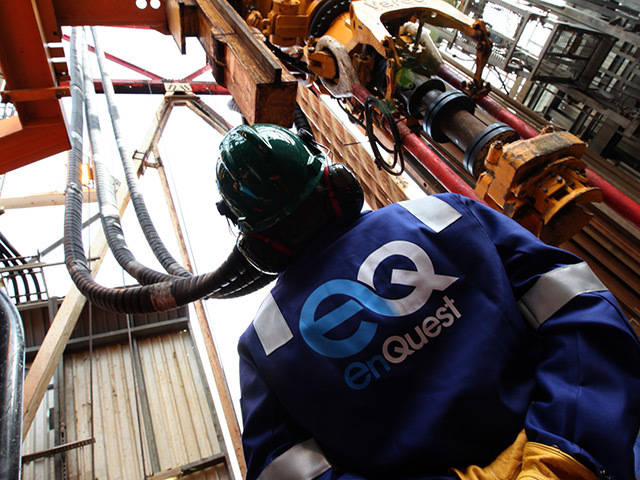
The firm behind the giant Kraken project has seen profits fall despite a 6% increase in its North Sea output after a hike in production costs.
EnQuest saw pre-tax profits drop 7.5%$ to £226.5million for 2013, despite revenues increasing by more than 8% as the company’s output increased.
Oil production reached an average of 24,222 barrels of oil equivalent per day, up more than 6% on 2012, but increased costs in transporting and producing the output at the Sullom Voe terminal hit the company’s bottom line.
The newly acquired Alba field helped swell average production, while the Heather, Broom and Don fields all saw output rise, while the Thistle/Deveron field saw average output drop slightly after maintenance and production issues.
“EnQuest has delivered another good year of growth in production and a significant increase in reserves, supported by strong cash flow,” said chief executive Amjad Bseisu.
“Production growth of over 6% represents an excellent operational and reservoir performance from our existing assets, particularly in the second half.”
The firm said it was looking for increased production from 2014 to between 25,000 and 30,000 barrels per day on average, as it looks to bring the Alma And Galia project on stream.
Almost £250million of the company’s projected £640million investment in projects this year will be on the giant Kraken project, with work on the Kraken FPSO due to start within the next few weeks.
More than 60% of contracts for the projecct have now been signed on Kraken, EnQuest confirmed, as work on the £4billion, 30,000 barrels of oil per day project picks up.
The company said it was also looking to carry out assessment work on the Greater Kittiwake Area after taking the field over earlier this year.
“Companies like EnQuest are the future of the UK North Sea,” said Bseisu.
“Having strong and technically focused operations gives us the ability to maximise hydrocarbon recovery.
“Our objectives are fully aligned with the goals and the recommendations of the recent Wood Review. Our business model is sustainable and is set to deliver a material increase in cash flow from operations over the coming years.”
See our exclusive interview with EnQuest chief executive Amjad Bseisu only in tomorrow’s Press and Journal.
Recommended for you
